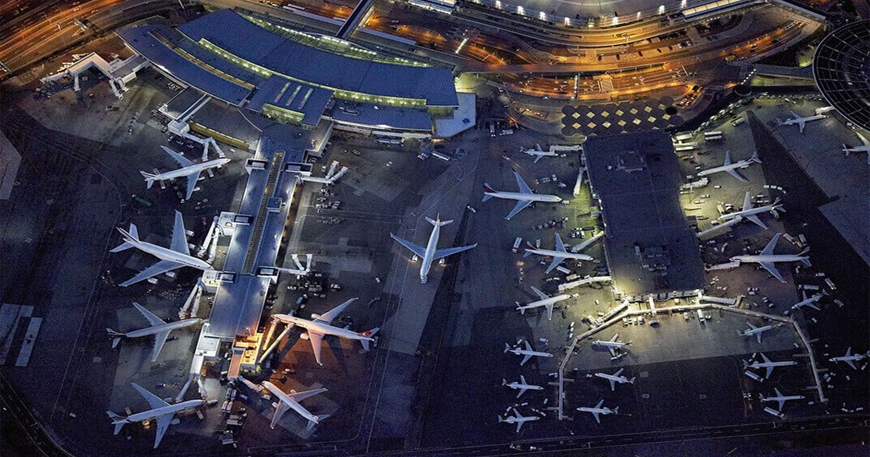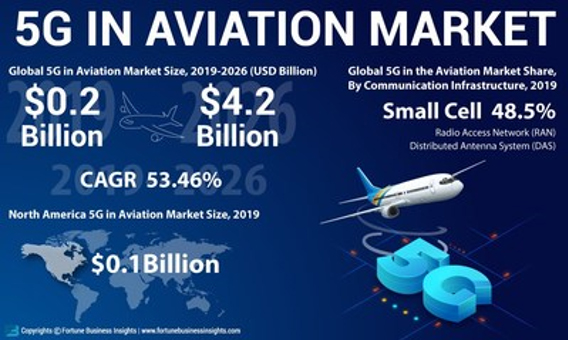Download Airport Use Case
The aviation industry is complex, busy, and undergoing a major transformation. With traffic returning to airports after the Covid-era, the industry needs to embrace and adopt new technology advancements to enhance their operations. Airports are hubs for almost every industry; thus, their efficiency directly creates an impact on other industries.
Airlines continue to face challenges due to continuous weather changes, technical glitches, and passenger control. Keeping every operating body connected continuously is crucial.
Implementing next-gen mobility for streamlining operations
The deployment of 5G in the aviation sector is expected to bring significant benefits, particularly in terms of improved efficiency, safety, and passenger experience. Private 5G is designed to make airports ready for the future and counter challenges in a smart and efficient manner.
Airports have multiple stakeholders and a complex ecosystem – with various segments working harmoniously to provide passengers with a smooth traveling experience. To enable a flawless experience, connectivity is the most critical aspect, and since airports are more vulnerable to threats, security becomes a core component as well.
After the financial dip during the Covid, the Aviation sector needs a strong comeback and lay a concrete foundation for the future. Private 5G’s low latency, higher bandwidth, and multi-device connectivity along with the advantage of strong security will enable real-time, high-bandwidth, densely-connected networks; which will be essential for advances in command, control, and communications.
Private 5G has multiple advantages for the aviation industry:
- Smart Air Traffic Control: Air traffic control is a critical component of aviation safety. Smart decisions are constantly needed to respond to ever-changing situations and weather at airports. 5G provides real-time data transfer and noise-free connectivity between air traffic control rooms and pilots resulting in quick solutions deployed on time. This results in increased safety and improved operational efficiency, while reducing delays.
- In-Flight Connectivity: While this concept isn’t new, many private companies in the aviation sector have them already in place. Private 5G networks make this experience better by offering passengers seamless in-flight connectivity, including high-speed internet access, streaming video, and gaming. This helps airlines to keep themselves a step ahead of their competitors and provide a better passenger experience.
- Predictive Maintenance and Repairs: Private 5G networks go hand in hand with AI and ML while providing real-time data transfer between aircraft and ground-based maintenance teams. With further use of AR/VR and AI, airlines can predict the chances of future failures and can perform faster and more efficient repairs. Thus, reducing the downtime and last-moment delays, saving enormous capital in return.
- Increased Flight Safety: By providing the ability to transfer real-time data between aircraft, air traffic control, and ground-based teams, private 5G networks help in increasing flight safety. Having 8K surveillance cameras installed, with drones deployed across the airline’s ecosystem can constantly track the ongoing activities of passengers. Enhanced connectivity could be used to provide real-time weather updates to pilots, enabling them to make better decisions and avoid turbulent conditions.
- Efficient Flight Operations and Smart Baggage Control: Keeping the passengers updated and having the flights on time is crucial. A digitized way for check-ins and boarding of passengers can reduce the overall security time, while sensors and robots to manage the baggage will result in reduced complaints of luggage being misplaced. Autonomous guided vehicles for ground support results in better traffic control and easy luggage onboarding. A smart way to bring passengers and airlines together with controlled assets deployed will lead to increased productivity across every key body functioning.
Private 5G opens a whole new domain, airlines need to look at how they can reap its capabilities for their maximum advantage. As advancement in technology continues to prevail, private 5G will become a core part of the aviation industry’s ecosystem, helping them to reach new heights while driving innovation and transformation.
Source: https://markets.businessinsider.com/news/stocks/5g-in-aviation-market-size-to-hit-usd-4-2-billion-by-2026-increasing-adoption-of-5g-technology-across-industries-to-spur-growth-fortune-business-insights-1028769078
The global 5G in Aviation Market size is projected to reach USD 4.2 billion by 2026, surging at a CAGR of 53.46% during the forecast period.
A reduced wired ecosystem across the airlines will save cost, whereas key design changes can take place for better utilization of spaces. The next generation of travel services can be obtained, in fact, airlines can monetize private 5G by renting it out to the service industry present at airports. Overall, it is a win-win situation for the aviation industry, embracing private 5G will make them better in every aspect.






